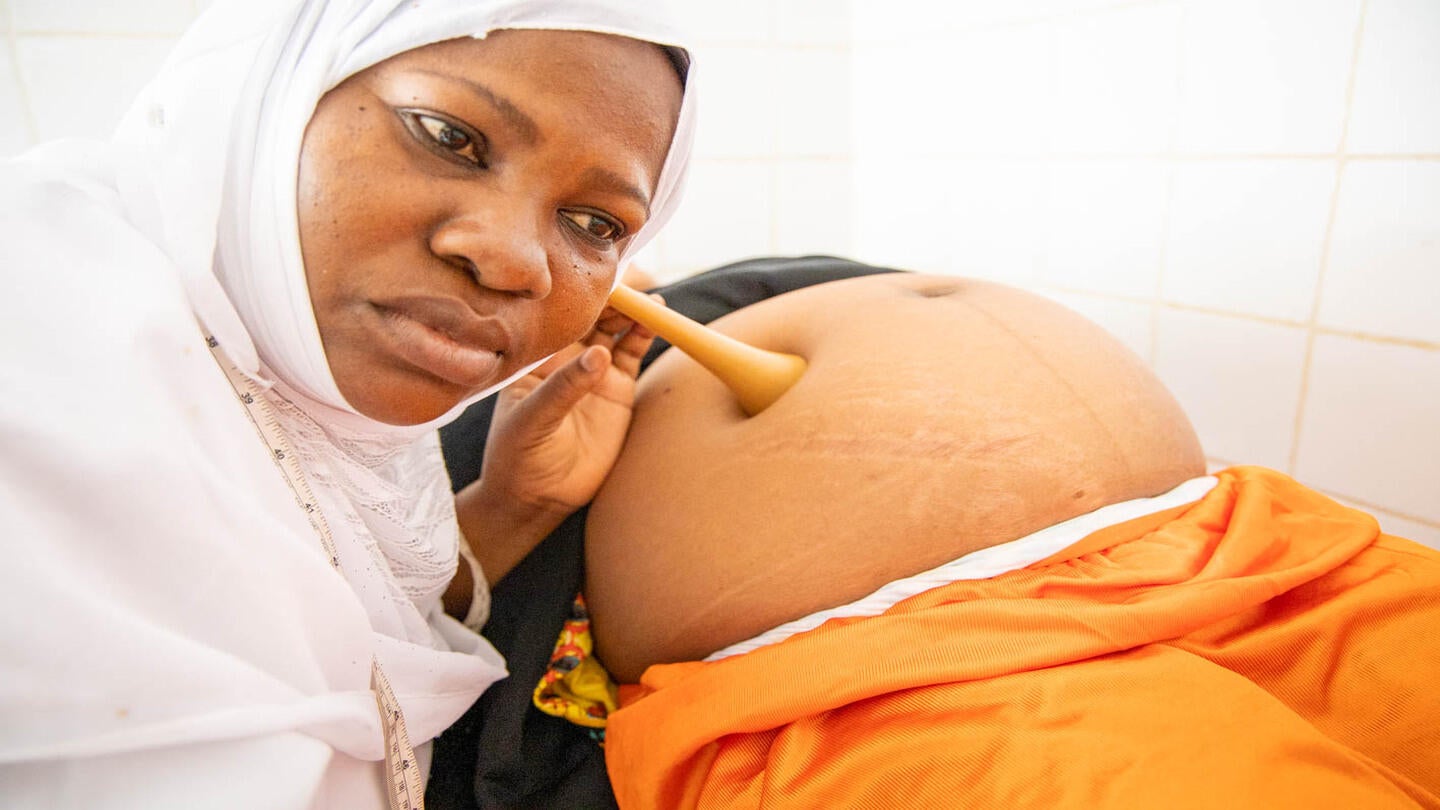"Every day is a new challenge, but it’s also a new opportunity to save a life. My work as a midwife is not just a profession; it’s a calling, and I’m committed to ensuring that every woman and child gets the care they deserve, no matter the circumstances." — Olivia Mhila, Midwife, Tanzania
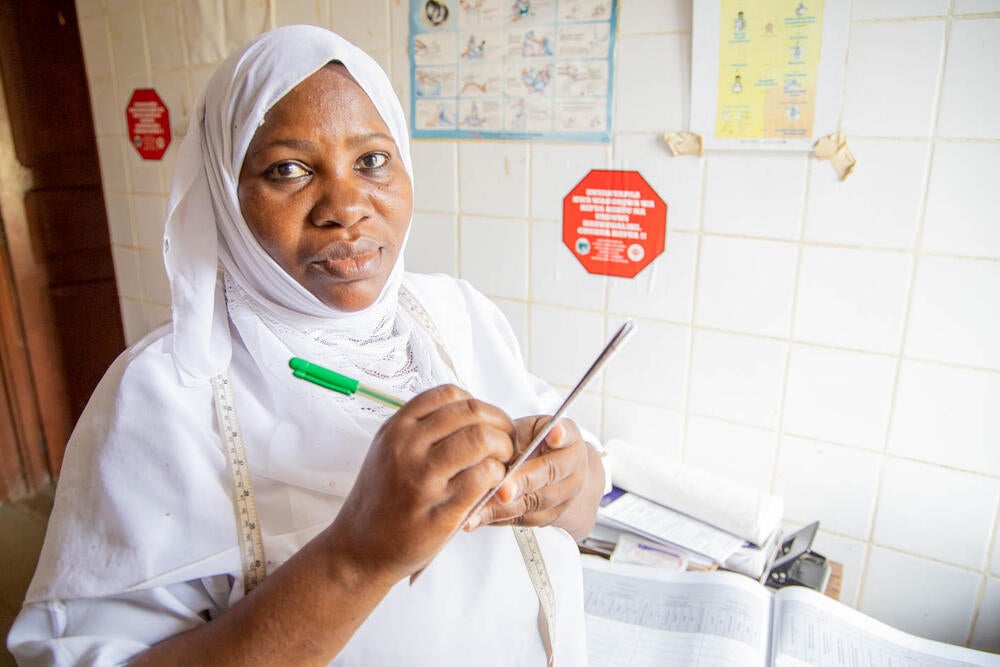
In the heart of Shinyanga, Tanzania, one midwife's commitment to improving maternal health is making an extraordinary difference. Olivia Mhila, a dedicated midwife in one of the region’s rural health facilities, is a true embodiment of resilience and compassion, particularly in challenging environments. Her work showcases the power of midwifery and the impact it can have in saving lives.
The Context: Overcoming Challenges in Shinyanga
Shinyanga, located in the northwestern part of Tanzania, faces unique challenges when it comes to healthcare, especially maternal and newborn care. The region struggles with limited access to quality healthcare services due to inadequate infrastructure, geographic barriers, and a shortage of skilled health professionals. For many women in this area, the nearest health facility may be hours away, and the road to get there can be treacherous.
Despite these challenges, Olivia has become a beacon of hope for many women in her community. As one of the few midwives in the area, she plays an essential role in providing life-saving care during pregnancy, childbirth, and the postnatal period.
A Day in Olivia's Life: Delivering Life and Hope
Every day, Olivia faces a mixture of routine and emergency cases, but she approaches her work with unwavering determination and empathy. Her commitment to her patients is clear: she goes above and beyond to ensure that every woman who comes into her care receives the best possible service.
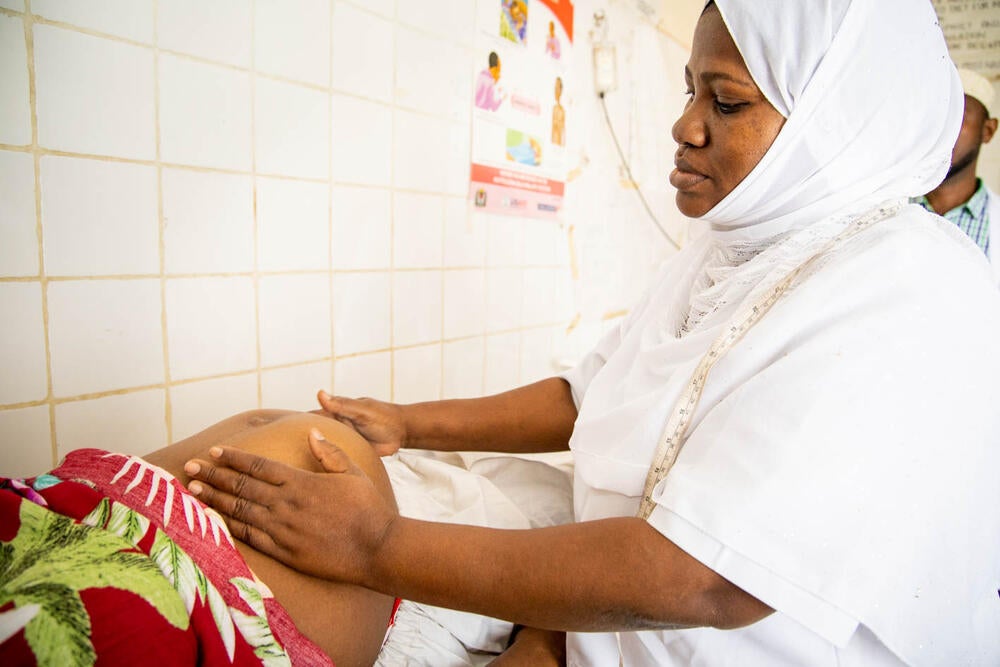
In the rural areas of Shinyanga, women often have to travel long distances to access maternal care. Olivia’s health facility, though small, serves as a crucial lifeline for these women. Olivia not only provides safe deliveries but also offers comprehensive prenatal and postnatal care, as well as education on family planning, infant care, and the importance of seeking professional care during pregnancy.
One of the most notable examples of Olivia’s impact occurred during a particularly challenging rainy season. Many roads leading to the health facility were impassable due to floods, yet Olivia didn’t let this deter her from reaching her patients. She would brave the elements, traveling by foot or even using alternative routes, to attend to the women who needed her care.
Saving Lives: Olivia's Impact
Olivia’s ability to provide skilled and compassionate care in difficult circumstances has saved countless lives. Her dedication is especially evident when dealing with high-risk pregnancies, emergencies, or women who give birth in difficult conditions. One memorable case was when a pregnant woman arrived at the health facility in labor during a heavy storm. The road was completely flooded, and the woman had to be carried by her family across the water to reach Olivia’s clinic. Despite the challenging circumstances, Olivia successfully delivered a healthy baby and ensured the mother received the necessary postnatal care.
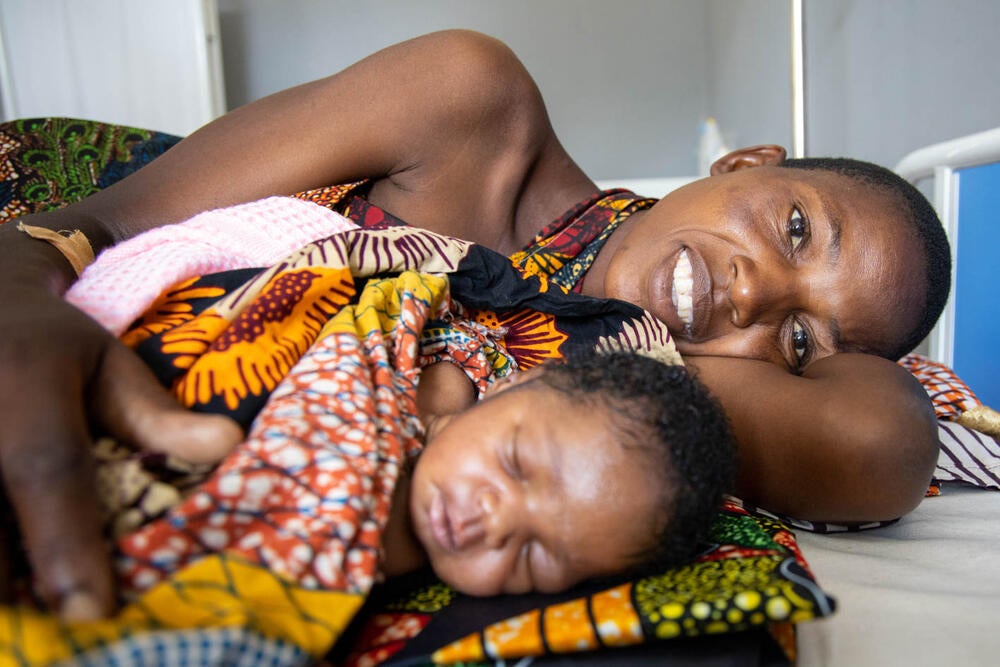
Beyond her clinical skills, Olivia has become a trusted figure in the community. She has built strong relationships with the women she serves and is often called upon to offer guidance and emotional support, not just during childbirth, but throughout the entire maternal health journey. She also works tirelessly to educate the community on the importance of family planning and the benefits of delivering in a healthcare facility rather than at home.
"Every mother and newborn deserves a safe and healthy start. Through the Uzazi Salama Project, we're not just saving lives — we're building a future of stronger, healthier families."
— Olivia Mhila, Midwife, Thamini Uzazi Salama Project
Investing in Midwifery: A Key to Better Health Outcomes
Olivia’s work highlights the critical role that midwives like her play in improving maternal and newborn health outcomes in Tanzania. Midwives are often the first point of contact for pregnant women, and their expertise and care are crucial in preventing complications during childbirth. Olivia’s ability to manage complex deliveries, identify potential risks, and provide immediate care in emergency situations makes her an invaluable asset to her community.
However, midwives like Olivia face many challenges in their work, including a lack of resources, limited training opportunities, and sometimes overwhelming caseloads. Despite these obstacles, Olivia’s resilience and dedication have made a tangible difference in the lives of the women and families she serves.
Looking Forward: The Importance of Supporting Midwives
Olivia’s story is just one example of the immense impact that midwives can have in their communities. As we continue to recognize the vital role midwives play in the health system, it is essential that we invest in their education, training, and working conditions. Supporting midwives like Olivia is not only a moral imperative but also a health priority that can significantly improve maternal and newborn health outcomes in Tanzania and beyond.
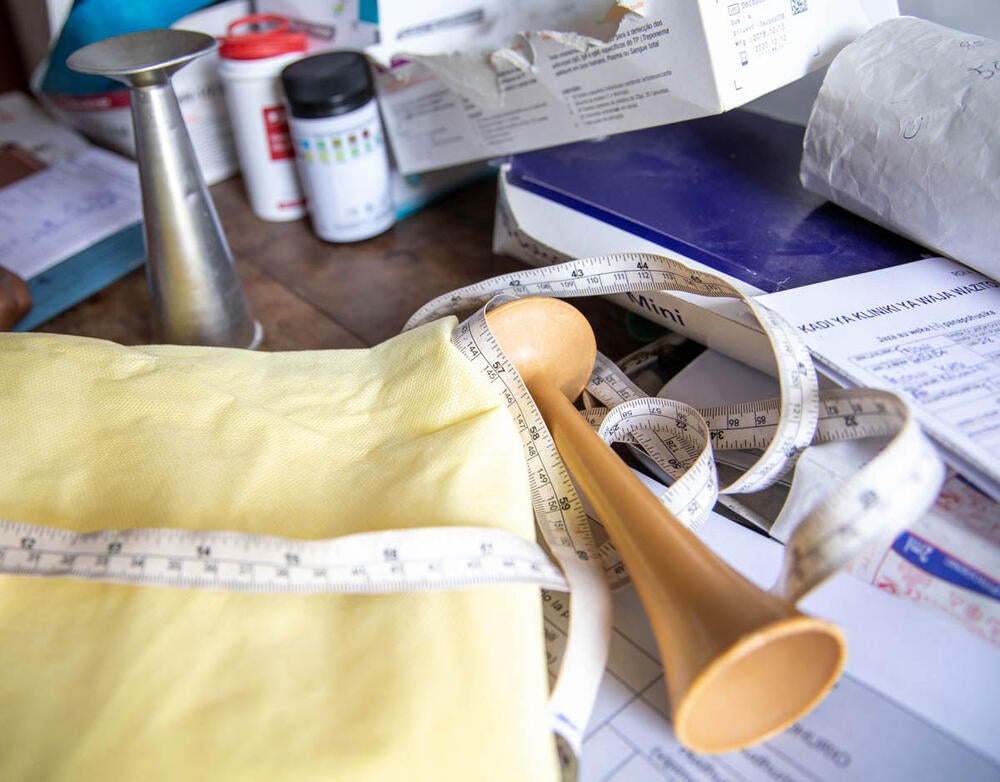
Through projects like the Thamini Uzazi Salama Project – Strengthening Midwifery in Tanzania (SMIT), in partnership with the High Commission of Canada in Tanzania, UNFPA is addressing the critical challenges related to the availability of skilled midwives. This 7-year initiative is dedicated to reducing maternal and newborn mortality in the country. The project aims to empower midwives, offer continuous professional development, and ensure that skilled professionals like Olivia have the resources and support they need to continue their life-saving work.
The project seeks to increase the availability of skilled and empowered midwives who are critical to reducing maternal and newborn mortality, while also providing comprehensive reproductive, maternal, newborn, child, and adolescent health services. With a strong focus on creating a gender-responsive working environment for midwives, the project will provide opportunities for continuous professional development and skills upgrading for in-service midwives.
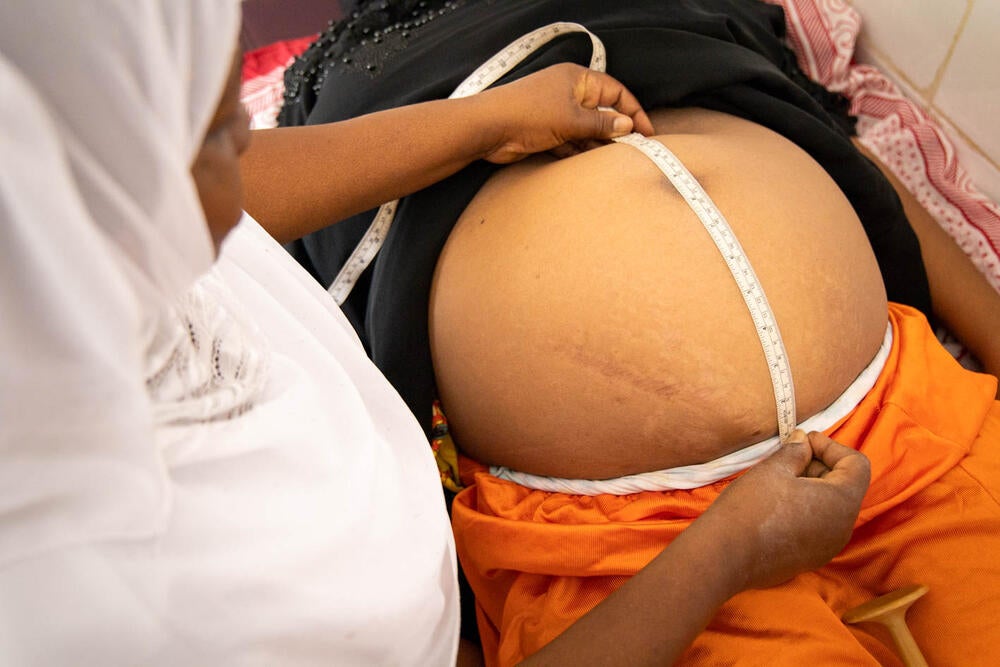
Canada is proud to support the vital work of midwives like Olivia Mhila in Shinyanga. By investing in midwifery, we are helping to ensure that every mother and baby has access to quality healthcare. Olivia's dedication and resilience are a testament to the profound impact that skilled midwives can have in their communities. Together, we are building a brighter and healthier future for women and children in Tanzania. – Government of Canada” H.E. Emily Burns, High Commissioner of Canada in Tanzania.
UNFPA Tanzania is deeply grateful to the Government of Canada for its financial support of this transformative project through Global Affairs Canada (GAC). Through initiatives like the Thamini Uzazi Salama -SMIT project, UNFPA is ensuring that midwives, the unsung heroes of our communities, are empowered, equipped, and supported to continue their life-saving work. The project builds on, and amplifies the work already being done by UNFPA and partners involved in this project - Amref Canada and Canadian Association of Midwives (CAM), and their collaborators, in advocating for quality midwifery services and recognition of midwifery as a distinct profession within the health care system.
“Olivia Mhila’s story is one of hope, resilience, and the unwavering commitment of a midwife who ensures that even in the most difficult circumstances, women and children receive the care they deserve. Her work serves as an inspiration to us all, reminding us of the critical role that midwives play in every crisis”. Mark Bryan Schreiner, Representative in Tanzania
-
Media Inquiries:
Dr. Warren Bright
UNFPA Communications Analyst,
United Republic of Tanzania
Phone: +255 764 43 44 45
Email: bwarren@unfpa.or

